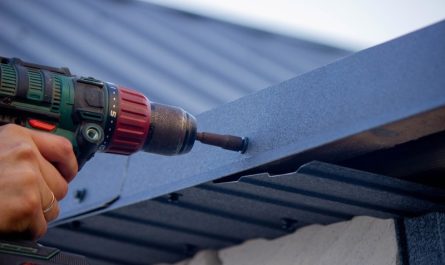As homeowners strive for healthier living environments, indoor air quality takes center stage. Heat pumps, a versatile and energy-efficient technology, step into the spotlight, offering not just temperature comfort but also enhancements to air quality. This article delves into the mechanics of heat pumps and their role in purifying your home’s atmosphere.
The Basics of Heat Pump Operation
Heat pumps work by transferring heat energy from one place to another. In the colder months, they extract warmth from the outdoor air or ground and move it indoors. Conversely, during the warmer seasons, they can cool your home by reversing the process, pulling heat from inside and releasing it outside.
The continual air movement facilitated by a heat pump is key to its ability to improve indoor air quality. This process not only regulates temperature but also filters and dehumidifies the air, which is beneficial for creating a healthier indoor environment.
Filtration Enhancements
One pivotal feature of heat pumps is their integrated filtration system. These filters are designed to trap dust, pollen, and other airborne particles. Depending on the system, the filter quality can greatly affect the purity of indoor air.
-
Allergen reduction – Filters remove potential allergens, assisting those with allergies and respiratory issues.
-
Decreased dust – A home with less dust is not only easier to clean but also better for respiratory health.
Regular maintenance and filter replacement is crucial for the system to operate at its most effective, ensuring the air in your home remains clean.
Controlling Humidity Levels
Heat pumps are adept at managing indoor humidity levels, which is an often overlooked aspect of air quality. Maintaining optimal humidity is essential, as high levels can encourage mold growth while low levels can cause respiratory discomfort.
To prevent these issues and promote a comfortable atmosphere, heat pump conditions and dehumidifies the air as part of its regular operation. This feature makes heat pumps an attractive option for environments with substantial humidity challenges.
Reducing Contaminants
Pairing the basic filtration system of a heat pump with supplementary air purifying technologies creates an even more robust barrier against indoor contaminants. Some heat pumps may come equipped with or be compatible with UV lights or advanced filtration systems that target bacteria, viruses, and volatile organic compounds.
Regular use of a heat pump helps maintain a continuous flow of clean air, diluting and displacing potential contaminants and therefore improving the overall air quality of your home.
Non-Disruptive Airflow
Heat pumps operate quieter and distribute air more evenly compared to traditional heating and cooling systems. This gentle circulation is less likely to stir up dust and allergens that settle on surfaces, maintaining a cleaner and more comfortable living space.
Smooth and consistent airflow also means fewer hot and cold spots within the home, ensuring comprehensive comfort without compromising air quality.
Contribution to a Greener Home
Beyond interior air quality, heat pumps contribute to an overall greener home. Utilizing electricity and refrigerant properties for heating and cooling lessens the need for fossil fuel consumption. This efficiency translates to reduced greenhouse gas emissions and a lower carbon footprint for households.
Eco-friendly refrigerants used in some modern heat pumps also minimize environmental impact, which is important for safeguarding both outdoor and indoor air quality for the long term.
Optimized for Healthier Air
Advancements in heat pump technologies have led to models specifically optimized for health benefits. These systems may include enhanced filtration capabilities, humidity control, and additional features to combat airborne pathogens. For example, the introduction of ductless mini split heat pump systems has made efficient air quality improvements accessible to homes without existing ductwork.
Professional Installation and Maintenance
Professional installation and routine maintenance are essential to fully attaining the air quality benefits that heat pumps can offer. Seeking assistance from an established HVAC company in Nova Scotia, for instance, ensures that the system is correctly sized, installed, and serviced and that it functions at peak efficiency.
Expert technicians will take into account the specific needs of your home and can recommend suitable heat pump models that align with your goals for cleaner, healthier air.
Enhancing Heat Pump Performance for Air Quality
-
Choosing the right size – An appropriately sized heat pump is more efficient and effective at filtering and dehumidifying the air.
-
Regular maintenance – Seasonal check-ups and filter changes keep the system running smoothly and the air quality high.
By taking proactive measures, homeowners can maximize the air quality benefits provided by their heat pump, all while enjoying the added advantages of energy savings and comfort.
Wrapping Up
Heat pumps are an impressive solution for improving your home’s indoor environment. Their ability to filter, dehumidify, and circulate air contributes to a cleaner and healthier space. Through a combination of advanced features and careful maintenance, heat pumps represent a wise investment for anyone aiming to enhance indoor air quality.
As more individuals recognize the impact of their home’s air on their well-being, heat pumps emerge as a smart choice for achieving optimal indoor air health.




